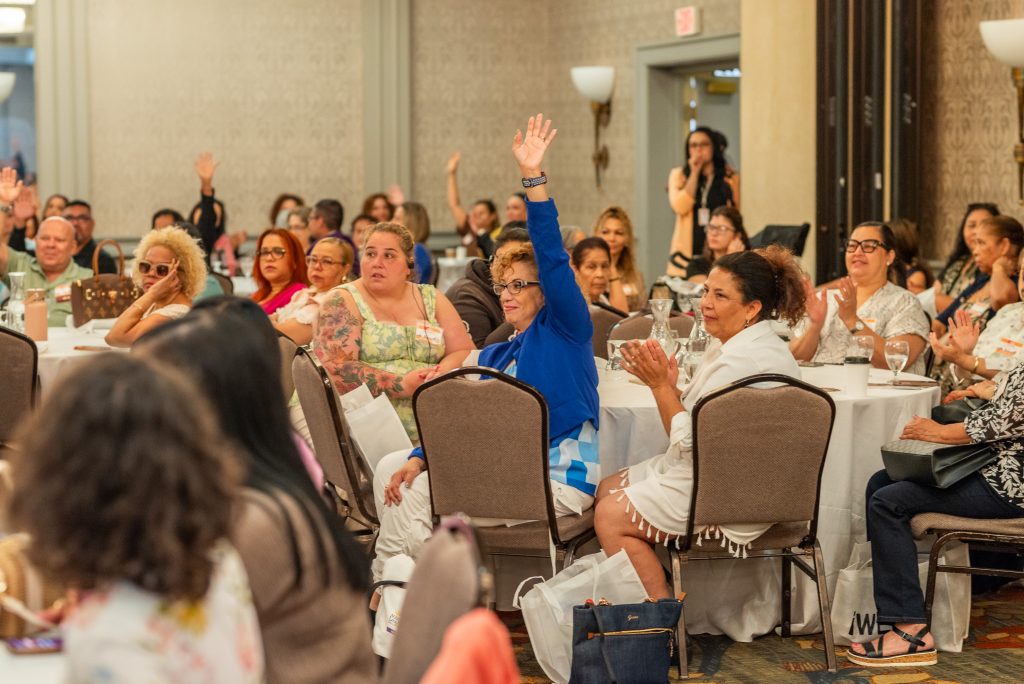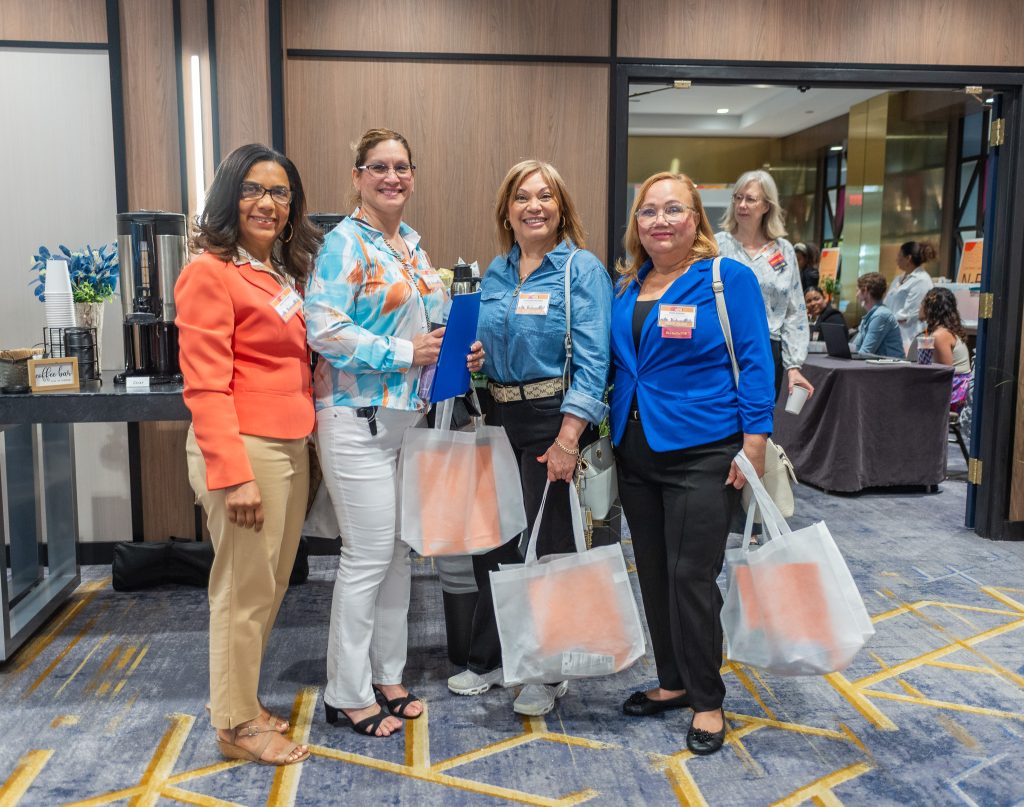The transition from home to a child care program is a big milestone—one that often comes with a mix of emotions for both parents and children. While it can be exciting to see your little one take this next step, it’s also natural to feel a bit nervous about the unknown. Fortunately, with a few thoughtful strategies and supportive routines, you can ease the transition and help your child start child care or preschool with confidence.
Laying the Groundwork: General Tips for All Ages
No matter your child’s age, there are some tried-and-true ways to make the shift to child care smoother:
Age-by-Age Transition Support
Every stage of development offers different opportunities to prepare your child for time away from home. Here’s how you can support them, tailored to their age and stage:
0–6 Months
Whether your baby is headed to daycare now or in the future, now is the perfect time to build habits that support future transitions.
Focus On:
1-2 Years
This is when many children begin exploring independently, making it an ideal time to start prepping for future separations.
Prep Ideas:
2-3 Years
This is a key age for building independence and communication skills that will support success in a group setting.
Prep Ideas:
3-4 Years
At this stage, many children begin preschool. It's a prime time for building school readiness and emotional resilience.
Prep Ideas:
4-5 Years
This is the year before kindergarten, where confidence and problem-solving skills take center stage.
Prep Ideas:
Stories are a powerful tool to help children make sense of new experiences and big feelings. Here are some favorites:
Emotional Reassurance & Separation Anxiety
First Day of Child Care or Preschool
Social Skills & Daily Routines
Final Thoughts
Transitions take time, and it’s okay for your child and you to have big feelings about this new chapter. By preparing gradually, staying consistent with routines, and offering lots of reassurance, you’re helping your child build the confidence they need to thrive in child care and beyond.
Remember: You're not alone. Your child care provider is your partner in this journey. Don’t hesitate to reach out to them with questions, concerns, or just to check in. Together, you can create a smooth, supportive start for your little one’s exciting new adventure.
The Summer months bring the opportunity for fun adventures, park visits, and more outdoor play, but the hazards from the sun and high temperatures can catch us all by surprise. From burns to heat related illnesses, it is important to stay one step ahead to keep kids safe and comfortable.
Below are some tips to ensure safe, summertime outdoor fun!
We hope you and the littles in your care stay safe and have fun!
On Saturday, June 7th, the SEIU Education & Support Fund (ESF-RI), a training fund collectively bargained to serve family child care educators in the state, hosted its sixth annual We Empower Providers Assembly (WEPA). That morning, the Providence Marriott Downtown was filled with excitement, purpose and possibilities as close to 200 Rhode Island family child care educators came together to discuss entrepreneurial success, early education and how these are all influenced by self care. For the first time, WEPA had a national presence with educators from Massachusetts, Connecticut and as far as California joining the convening meant to uplift the voices and needs of their communities.

For the unfamiliar, family child care educators (FCCEs) are licensed early childhood professionals who operate high-quality programs out of their own homes, often serving mixed-age groups in nurturing, culturally rooted environments. Deeply embedded in their communities (primarily in the cities of Providence, Cranston, Central Falls, Pawtucket & Johnston), they provide essential care for working families, offering flexible hours, personalized attention, and long-term relationships that support children’s development. These educators wear many hats: entrepreneur, teacher, administrator, and advocate yet for a long time they worked in isolation, without access to the same resources or recognition as larger child care centers, and without the accolades they deserved.
WEPA was created in 2020 as a way to combat those persistent issues that educators had been expressing for decades. In its design, the conference is a welcoming, FCC-centered and led event hosted in Spanish with English interpretation and the only one of its kind in New England. This year, 20 educators led and facilitated breakout sessions centered on three imperative topics: program values; the influence of brand, image, and thoughtful marketing; and the critical role of self-care in shaping all of these elements and, ultimately, in driving entrepreneurial success. As a conference created for educators by educators, it is crucial that they continue to lead these important conversations and foster a space where connection, problem-solving, and meaningful dialogue can thrive.

In recognition of the unique roles and needs of family child care educator assistants, for the second year, the conference included a dedicated breakout room specifically for them. These professionals often work behind the scenes but play a vital role in the daily operations, culture, and quality of care in home-based programs. By creating a space just for assistants, WEPA ensures they have the opportunity to share their experiences, access targeted resources, and connect with others in similar roles. The session honored their contributions while also offering tools and conversations tailored to their specific challenges and aspirations.
Last but not least important, community partners from ten local organizations – SEIU 1199NE, RI DHS, the Center for Early Learning Professionals, SUCCESS, CCRI, RIAEYC, the RI Hispanic Chamber of Commerce, Neighborhood Health Plan, and URI SNAP-Ed – joined the conversation to actively listen to educator needs and share resources. Their collaboration underscored a shared commitment to supporting early childhood educators and strengthening the broader care and education ecosystem. This intentional inclusion reflects WEPA’s commitment to recognizing the full ecosystem of early education and to ensuring that everyone, no matter their title, feels seen, heard, and empowered.
Sometimes our superheroes prepare lunches, guide us in how to properly wash our hands and help us set up for naptime. Sometimes they do storytime, they teach us our ABCs and they help us learn a second language. Sometimes they provide 50 hours a week of loving care so parents can go to work knowing their child is loved and cared for. Sometimes, they become a second home.
All of the time, these superheroes are family child care educators.
Every year, the Friday before Mother's Day, we celebrate Child Care Provider Appreciation Day. May 10, 2025 is a day to acknowledge and thank the child care providers, teachers, and educators who support the well-being and development of our young children. This day recognizes the significant impact of child care professionals on families and communities. Acknowledging their dedication not only shows appreciation for their hard work but also raises awareness of the essential contributions they make, helping to support and elevate the profession of early childhood education.
To honor the incredible work our family child care educators do, here are 10 things we appreciate about our educators:
The state of Rhode Island is home to over 400 licensed family child care educators (FCCEs), each dedicated to serving children and families within our diverse communities. These educators enter the field with a shared commitment to providing high-quality early childhood education in a safe and nurturing environment, giving families peace of mind that their children are being cared for properly. The Department of Human Services (DHS) plays a vital role in maintaining the safety and integrity of child care programs across the state, overseeing licensing standards for both home-based and center-based programs to ensure the well-being of every child in care.
To operate a licensed family child care program in Rhode Island, educators must meet a variety of requirements set forth by the Department of Human Services to ensure the safety, well-being, and development of the children in their care. These requirements are designed to support educators in providing a high-quality early childhood experience while adhering to strict safety and regulatory standards.
Family child care educators are subject to periodic inspections by DHS to ensure compliance with state regulations. These inspections evaluate the physical space, health and safety practices, and overall adherence to licensing standards. Educators must pass these inspections to maintain their license and continue offering care to children.
The Starting RIght Child Care Assistance Program (CCAP) program subsidizes the cost of child care for families that are residents of Rhode Island. Families whose incomes are at or below 261% of the federal poverty level and meet the CCAP eligibility requirements can receive full or partial payment for child care costs when provided by a CCAP-approved child care provider.
While DHS and CCAP serve different functions, they work hand in hand to ensure that all families, regardless of income or background, have access to quality early childhood education and care. DHS is primarily responsible for setting and enforcing the licensing standards that govern child care programs across Rhode Island, ensuring that every child is cared for in a safe and regulated environment. On the other hand, CCAP focuses on making child care more affordable for families by subsidizing child care costs, especially for those with limited financial resources. Together, these programs help create a comprehensive child care system that addresses both the quality and accessibility of care, particularly for families in underserved communities. By partnering with CCAP, DHS ensures that families in need can access licensed, high-quality child care providers, fostering equity in early childhood education across the state. CCAP-licensed providers must comply with all licensing regulations, some of which are listed below:
Approximately 90% of family child care programs in the state are CCAP-approved, with the highest concentration in the inner cities of Cranston, Central Falls, Pawtucket, and Providence. When we take a closer look, we find that Providence-based FCCEs account for 7% of licensed early learning program slots statewide but a staggering 24% of CCAP statewide, demonstrating the invaluable niche of CCAP FCCEs in providing families - particularly those in urban settings and low-income - with equitable access to early education and high-quality care services.
One of the standout benefits of CCAP-approved family child care programs is their ability to embrace and celebrate diversity, which is especially valuable for families seeking a culturally rich experience for their children. Many CCAP-approved family child care educators offer programs that reflect a wide range of cultural experiences and incorporate multiple languages into their daily routines. This exposure provides children with an opportunity to expand on their own home culture while also learning about new cultures in an inclusive and supportive environment. Through these experiences, children develop respect for others, enhance their cultural awareness, and build empathy—skills that are essential for their social and emotional growth. By promoting diversity, CCAP providers offer families the chance to nurture their children’s growth in a multicultural world, ensuring every child feels valued and understood.
The partnership between DHS and CCAP is vital in ensuring that all families in Rhode Island have access to safe, affordable, and high-quality child care. By maintaining rigorous licensing standards and providing financial assistance, these programs support children’s development in a nurturing and inclusive environment. Together, they help create equitable opportunities for families, particularly those in underserved communities, fostering a brighter future for Rhode Island's children.